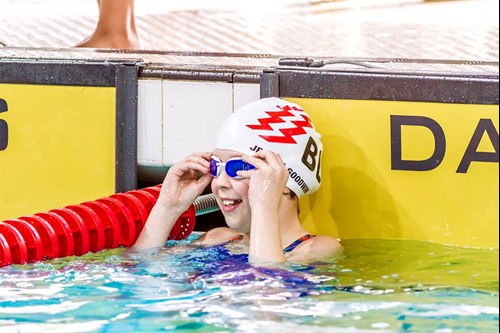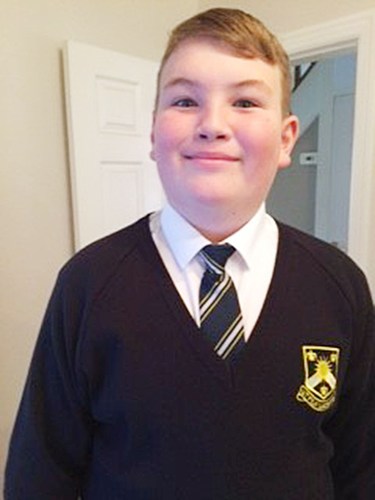How do I... help my child's clubs and extracurricular activities be deaf aware?
Parents offer their advice on helping to make their child’s after-school activities deaf-friendly and also share their tips on how they make sure their child is always able to join in and feel included.
We made adjustments...

Jodie
Phil is dad to Jodie (16) who is profoundly deaf and wears cochlear implants.
"My daughter Jodie competes at a high level in rugby union. There were a number of adjustments we had to make as she was growing up and playing rugby outside of school. We used to attend training with her and explain her needs face-to-face and ahead of time. We always made sure to find ways to help training providers adapt to make participation possible for her, for example making changes to rugby scrum caps to protect her processors and using signs to make instructions clear for her. It was important to us that Jodie always spoke up about her deafness and her needs with her team. She has now developed a set of responses and facts about her deafness that she can use in all sporting situations.
I also attended training sessions so I could later consolidate her learning and understanding at home. Jodie took rugby very seriously so we would do extra practice at home too.
Jodie also went to a Jujitsu club where I always encouraged the coaches to physically show her moves as her processors had to be removed for the activity."
Having a teacher in the pool face-to-face with her made a huge difference...

Jessica
Linda is mum to Jessica (11) who is moderately deaf and wears hearing aids.
"From an early age it became immediately apparent that the swimming lessons that have teachers poolside were no good for Jess; having a teacher in the pool face-to-face with her made a huge difference. Then she could see the teacher demonstrating strokes and lip-read instructions; also the teacher can physically move the kids’ arms in the way they are supposed to move! Choosing a swimming class that was committed to having smaller class sizes was also good for Jess.
The coaches at Jess’s club have seen the National Deaf Children’s Society swim course and this helps as I think sometimes we assume, as parents of deaf kids, that everyone will realise that facing the child and showing through demonstration helps, but actually people appreciate being told the best way to communicate.
Jess loves the fact she is often asked to write up the training plan on the white board. This is a great way for her to feel included in the team but also a sneaky way for her to have a ‘heads up’ on what’s coming up in training. It means she can often lead the lane as she doesn’t have to wait and see what the other kids do because she’s missed the instruction from her coach. Also the club has laminated the training sets for her to have poolside in case she needs to check what’s next – before this she would often mishear and set off doing the wrong stroke or drill.
Jess also plays the clarinet and likes to run. It’s time consuming but I always look into deaf music groups for her and search for tips online to help her pass exams."
We worked with the manager...

Thomas
Melissa is mum to Thomas (12) who is profoundly deaf and has one cochlear implant.
"We’ve worked with the manager of Thomas’s football club to make sure he understands his needs. The club have been very accommodating and helpful. Thomas was really keen to pursue a role as the goalkeeper in the team so we’ve agreed to buy a special head guard to protect Thomas’s hearing equipment.
Thomas also took part in cycling proficiency. We worked with the sensory support service to help the testers understand his needs and how he could be supported to take part. The local sensory support team were brilliant and provided good input at Thomas’s school and for out-of-school activities he takes part in. I’d encourage other parents to give clubs and providers information about supporting your child and also to look into organising support from other services like sensory support that can help providers of extracurricular activities."
